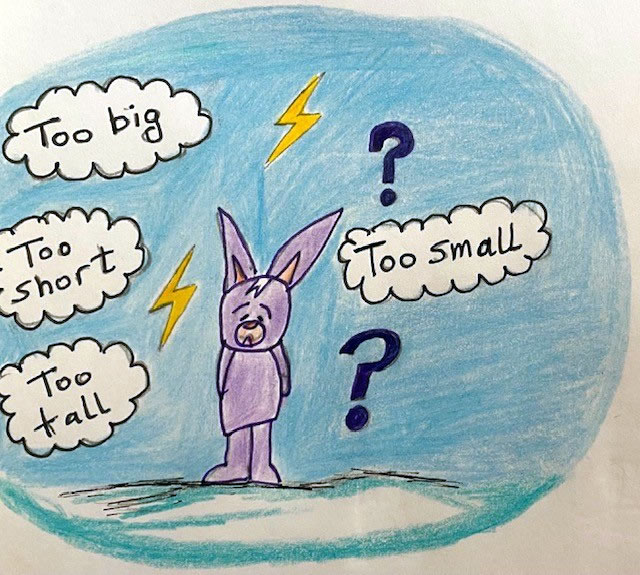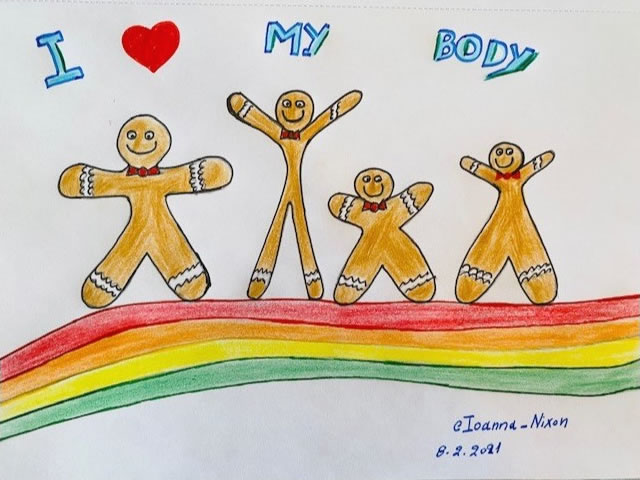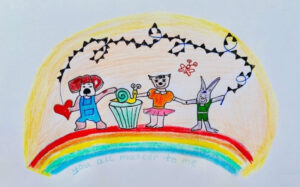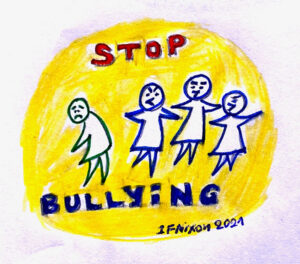
Jack Wee Rabbit has recently been thinking about his body. His body looks different to the body of Alfie the Bear and Robbie the Dog. Is this good or bad, he wonders. Is it better or worse being in my body? He starts comparing himself to his mates and doesn’t know how to feel about it, as they are all different…
Today, Dr Betty and Jack Wee Rabbit have a discussion with our dear friend Lisa Mavromara, who will help us teach our kids to love, accept and look after their body.
Nowadays, through the media and technology, children are exposed to a variety of images depicting “ideal bodies” and diets promising the “dream” body. This information strongly influences how they perceive their body image and also their perception of the body that they want to have when they grow up.
Acceptance of the body is crucial and should start from childhood: it increases self-esteem and contributes to the general love and acceptance one has for oneself. In recent years, our research shows that children, even from the age of 6 can express dissatisfaction with their body and would prefer to have a leaner body. It is important to note that the promotion of love and acceptance of the body from childhood, concerns both girls and boys.
So how can parents help their children to love and accept their bodies?
We know that children tend to observe and imitate their parents’ behaviors. Research shows that children who notice that their parents are happy with their body are more likely to feel better about their body image. Therefore, it is important for children to see their parents love and take care of themselves and their bodies first.

So, what can parents do Lisa, asks Dr Betty. Here comes a list:
• Avoid “labels”, both about yourself and other people. This will help children understand ones weight doesn’t determine their value. value. It will also help your children to be kind and accept others regardless of their weight.
• Focus on your child’s other characteristics and praise them for them and not for their weight. For example, focus on things like their interests, their talents, their intelligence, their kindness, and so on.
• It is good for all family members to follow a balanced diet that includes all food groups. Discuss with your children why each food group is important and what it can offer. Try to focus on the health benefits of food, not how it affects weight.
• Avoid foods such as sweets, etc. Teach your children how these food groups can be in their diet as part of a balanced diet. The goal here is not to ban such food groups, but to give your children the knowledge they need for each food group.
• As much as your schedule allows, establish ‘’meal time” as routine, family time where all family members spend time together talking without other distractions, such as telephones. Encourage your children to talk to you during the meal and share their worries and feelings.
• Teach your children that their weight is not related to their beauty. “you are beautiful and I love you just the way you are”. However, discuss with them how food and weight relate to their health. You can say things like “The important thing is to be healthy. We need the nutrients in our diet to grow taller, to be strong, to be able to _ (use an activity your child likes, eg dancing, running, singing, etc.), to have strong teeth and bones, shiny hair and to have energy so that we can do everything that makes us happy “.
Read books to your children that focus on body acceptance, as well as promoting positive role models for children who are not related to the body, e.g. books about women in science.
• Engage together in enjoyable activities that promote learning values of good nutrition. For example, take time to cook with your children. Choose together what you want to cook. Show them all the ingredients and, as you cook, discuss with them the benefits of each ingredient you use. Try to make this activity as fun as possible, e.g. use foods that have different colors, make children’s drawings through the food, listen to music and do not be afraid to get messy during the process.

• Arrange trips with your children to local producers and farms. This is an utterly fun way for your kids to learn where different foods come from and how they are made. Often, children will be able to see animals and get in touch with nature.
You can help your children love and accept not only their body but themselves- just the way they are!
Lisa Mavromara, Psychologist (CBT), specializing in eating disorders






No comment yet, add your voice below!